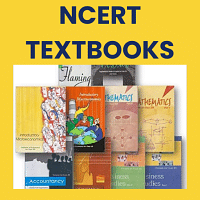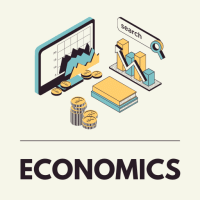Commerce Exam > Commerce Questions > Which of the following is an assumption of ra...
Start Learning for Free
Which of the following is an assumption of rationality to rational decision making?
- a)Preferences are clear
- b)Final choice will maximise payoff
- c)The problem is clear and unambiguous
- d)All of the above
Correct answer is option 'D'. Can you explain this answer?
| FREE This question is part of | Download PDF Attempt this Test |
Verified Answer
Which of the following is an assumption of rationality to rational dec...
Rational decision making is a multi-step process for making choices between alternatives. The process of rational decision-making favors logic, objectivity, and analysis over subjectivity and insight. The word “rational” in this context does not mean sane or clear-headed as it does in the colloquial sense.
The rational model also assumes:
1. An individual has full and perfect information on which to base a choice.
2. Measurable criteria exist for which data can be collected and analyzed.
3. An individual has the cognitive ability, time, and resources to evaluate each alternative against the others.
The rational model also assumes:
1. An individual has full and perfect information on which to base a choice.
2. Measurable criteria exist for which data can be collected and analyzed.
3. An individual has the cognitive ability, time, and resources to evaluate each alternative against the others.
Most Upvoted Answer
Which of the following is an assumption of rationality to rational dec...
Introduction:
Rational decision-making is a systematic approach to making choices that are based on logical reasoning and analysis. It assumes that individuals will make decisions that are in their best interest and will maximize their overall satisfaction or payoff. The assumption of rationality encompasses several key factors that are necessary for rational decision-making.
Clear Preferences:
One assumption of rational decision-making is that individuals have clear preferences. This means that they are able to rank their options in order of preference based on their own personal values, goals, and objectives. Clear preferences are essential for making decisions because they allow individuals to evaluate and compare different alternatives and choose the one that aligns best with their desired outcome.
Maximizing Payoff:
Another assumption is that the final choice made by the individual will maximize their payoff. Payoff refers to the outcome or result that is associated with each alternative. Rational decision-making assumes that individuals will make choices that will lead to the best possible outcome, given the available alternatives and their preferences. This means that individuals will consider the potential benefits, costs, and risks associated with each option and select the one that offers the highest expected payoff.
Clear and Unambiguous Problem:
The assumption of rational decision-making also includes the idea that the problem or decision to be made is clear and unambiguous. This means that individuals have a clear understanding of the problem they are trying to solve, the goals they are trying to achieve, and the available options. A clear and unambiguous problem allows individuals to gather relevant information, analyze the pros and cons of each option, and make a rational decision based on logical reasoning.
Conclusion:
In summary, the assumption of rationality in decision-making includes the assumptions that preferences are clear, the final choice will maximize payoff, and the problem is clear and unambiguous. These assumptions are important for rational decision-making because they provide a framework for individuals to assess and evaluate different alternatives and select the one that best aligns with their goals and objectives. By considering these factors, individuals can make informed decisions that are logical and rational.
Rational decision-making is a systematic approach to making choices that are based on logical reasoning and analysis. It assumes that individuals will make decisions that are in their best interest and will maximize their overall satisfaction or payoff. The assumption of rationality encompasses several key factors that are necessary for rational decision-making.
Clear Preferences:
One assumption of rational decision-making is that individuals have clear preferences. This means that they are able to rank their options in order of preference based on their own personal values, goals, and objectives. Clear preferences are essential for making decisions because they allow individuals to evaluate and compare different alternatives and choose the one that aligns best with their desired outcome.
Maximizing Payoff:
Another assumption is that the final choice made by the individual will maximize their payoff. Payoff refers to the outcome or result that is associated with each alternative. Rational decision-making assumes that individuals will make choices that will lead to the best possible outcome, given the available alternatives and their preferences. This means that individuals will consider the potential benefits, costs, and risks associated with each option and select the one that offers the highest expected payoff.
Clear and Unambiguous Problem:
The assumption of rational decision-making also includes the idea that the problem or decision to be made is clear and unambiguous. This means that individuals have a clear understanding of the problem they are trying to solve, the goals they are trying to achieve, and the available options. A clear and unambiguous problem allows individuals to gather relevant information, analyze the pros and cons of each option, and make a rational decision based on logical reasoning.
Conclusion:
In summary, the assumption of rationality in decision-making includes the assumptions that preferences are clear, the final choice will maximize payoff, and the problem is clear and unambiguous. These assumptions are important for rational decision-making because they provide a framework for individuals to assess and evaluate different alternatives and select the one that best aligns with their goals and objectives. By considering these factors, individuals can make informed decisions that are logical and rational.
Free Test
FREE
| Start Free Test |
Community Answer
Which of the following is an assumption of rationality to rational dec...
Rational decision making is a multi-step process for making choices between alternatives. The process of rational decision-making favors logic, objectivity, and analysis over subjectivity and insight. The word “rational” in this context does not mean sane or clear-headed as it does in the colloquial sense.
The rational model also assumes:
1. An individual has full and perfect information on which to base a choice.
2. Measurable criteria exist for which data can be collected and analyzed.
3. An individual has the cognitive ability, time, and resources to evaluate each alternative against the others.
The rational model also assumes:
1. An individual has full and perfect information on which to base a choice.
2. Measurable criteria exist for which data can be collected and analyzed.
3. An individual has the cognitive ability, time, and resources to evaluate each alternative against the others.
Attention Commerce Students!
To make sure you are not studying endlessly, EduRev has designed Commerce study material, with Structured Courses, Videos, & Test Series. Plus get personalized analysis, doubt solving and improvement plans to achieve a great score in Commerce.

|
Explore Courses for Commerce exam
|

|
Similar Commerce Doubts
Which of the following is an assumption of rationality to rational decision making?a)Preferences are clearb)Final choice will maximise payoffc)The problem is clear and unambiguousd)All of the aboveCorrect answer is option 'D'. Can you explain this answer?
Question Description
Which of the following is an assumption of rationality to rational decision making?a)Preferences are clearb)Final choice will maximise payoffc)The problem is clear and unambiguousd)All of the aboveCorrect answer is option 'D'. Can you explain this answer? for Commerce 2024 is part of Commerce preparation. The Question and answers have been prepared according to the Commerce exam syllabus. Information about Which of the following is an assumption of rationality to rational decision making?a)Preferences are clearb)Final choice will maximise payoffc)The problem is clear and unambiguousd)All of the aboveCorrect answer is option 'D'. Can you explain this answer? covers all topics & solutions for Commerce 2024 Exam. Find important definitions, questions, meanings, examples, exercises and tests below for Which of the following is an assumption of rationality to rational decision making?a)Preferences are clearb)Final choice will maximise payoffc)The problem is clear and unambiguousd)All of the aboveCorrect answer is option 'D'. Can you explain this answer?.
Which of the following is an assumption of rationality to rational decision making?a)Preferences are clearb)Final choice will maximise payoffc)The problem is clear and unambiguousd)All of the aboveCorrect answer is option 'D'. Can you explain this answer? for Commerce 2024 is part of Commerce preparation. The Question and answers have been prepared according to the Commerce exam syllabus. Information about Which of the following is an assumption of rationality to rational decision making?a)Preferences are clearb)Final choice will maximise payoffc)The problem is clear and unambiguousd)All of the aboveCorrect answer is option 'D'. Can you explain this answer? covers all topics & solutions for Commerce 2024 Exam. Find important definitions, questions, meanings, examples, exercises and tests below for Which of the following is an assumption of rationality to rational decision making?a)Preferences are clearb)Final choice will maximise payoffc)The problem is clear and unambiguousd)All of the aboveCorrect answer is option 'D'. Can you explain this answer?.
Solutions for Which of the following is an assumption of rationality to rational decision making?a)Preferences are clearb)Final choice will maximise payoffc)The problem is clear and unambiguousd)All of the aboveCorrect answer is option 'D'. Can you explain this answer? in English & in Hindi are available as part of our courses for Commerce.
Download more important topics, notes, lectures and mock test series for Commerce Exam by signing up for free.
Here you can find the meaning of Which of the following is an assumption of rationality to rational decision making?a)Preferences are clearb)Final choice will maximise payoffc)The problem is clear and unambiguousd)All of the aboveCorrect answer is option 'D'. Can you explain this answer? defined & explained in the simplest way possible. Besides giving the explanation of
Which of the following is an assumption of rationality to rational decision making?a)Preferences are clearb)Final choice will maximise payoffc)The problem is clear and unambiguousd)All of the aboveCorrect answer is option 'D'. Can you explain this answer?, a detailed solution for Which of the following is an assumption of rationality to rational decision making?a)Preferences are clearb)Final choice will maximise payoffc)The problem is clear and unambiguousd)All of the aboveCorrect answer is option 'D'. Can you explain this answer? has been provided alongside types of Which of the following is an assumption of rationality to rational decision making?a)Preferences are clearb)Final choice will maximise payoffc)The problem is clear and unambiguousd)All of the aboveCorrect answer is option 'D'. Can you explain this answer? theory, EduRev gives you an
ample number of questions to practice Which of the following is an assumption of rationality to rational decision making?a)Preferences are clearb)Final choice will maximise payoffc)The problem is clear and unambiguousd)All of the aboveCorrect answer is option 'D'. Can you explain this answer? tests, examples and also practice Commerce tests.

|
Explore Courses for Commerce exam
|

|
Suggested Free Tests
Signup for Free!
Signup to see your scores go up within 7 days! Learn & Practice with 1000+ FREE Notes, Videos & Tests.
























